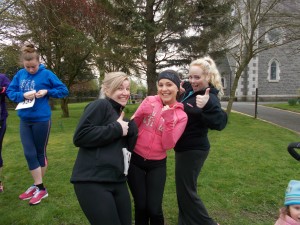Minister Quinn announces all primary schools to be offered funding from school book rental scheme capital fund
April 17, 2014
Approximately 400 primary schools will receive funding to establish book rental schemes shortly
The Minister for Education and Skills, Ruairí Quinn T.D., is announcing that all primary schools who currently operate a school book rental scheme will be able to benefit from the €15 million School Book Rental Scheme Fund which he secured as part of Budget 2014.
Last October, the Minister announced that the €15 million fund would be targeted specifically at primary schools who did not currently operate a book rental scheme. The Department of Education has received applications from approximately 400 such schools to date.
531 schools who previously indicated that they did not have book loan schemes were invited to apply for the funding. Of these, three quarters of these schools have now applied.
DEIS schools will receive €150 per child and non-DEIS schools will receive €100 per child in seed capital funding over the next two years to establish book rental schemes. This will cost approximately €6.7 million and is expected to benefit more than 63,000 pupils and their families.
Minister Quinn has now decided that the balance of the fund, some €8.3 million, will be divided among all other primary schools that currently operate book rental schemes, in 2015 and 2016. These schools are expected to receive a total of €18 per pupil or €20 in DEIS schools over those two years. This is on top of the annual book grant of €15 million which is paid to all schools on a per pupil basis. This forms part of the Minister’s wider agenda to tackle the high costs of going to school for parents.
“Every primary school in the country has now the opportunity to benefit from the School Book Rental Scheme funding we secured through the proceeds of the sale of the national Lottery.”
“When I first announced this scheme which targeted only primary schools who were not operating a Book Rental Scheme, many of the other schools voiced their concern at being left out, despite the hard work of many parents and teachers to establish such schemes.”
“I indicated that after the initial first round of funding was allocated that we could examine the scheme again and I am delighted that we will be able to provide an extra boost to these other schools which should allow them to expand or replace some books on their own schemes.”
“Every primary school has now been given the opportunity to benefit from the funding I secured for book rental schemes. I believe that all parents should have access to a school book rental scheme enabling them to significantly reduce the costs of sending a child to school,” said the Minister.
€5 million in seed capital funds for approximately 400 schools to establish book rental schemes will be distributed later this month in order to give the schools time to do so for the next school year, using the Guidelines issues by the Department in January 2013. The balance of the funding, €1.7 million, will be distributed to qualifying schools in 2015.
Provisions are also being made for new primary schools due to open in September to receive this funding. All other primary schools that currently operate book rental schemes will receive their share of the funding in 2015 and 2016.
The eligibility criteria for funding under the Seed Capital Grant Scheme for Book Loan/Rental Schemes is as follows:
(a) The school authorities must undertake to establish a textbook loan/rental scheme (covering either hard copy or electronic books) for the main textbooks used by the students in accordance with best practice contained in the Guidelines for Developing Textbook Rental Schemes in Schools for a minimum of 5 years. A book loan/rental scheme will normally have to achieve a life of approximately five years for each textbook, for it to break even.
(b) The school must confirm that it did not operate a school textbook loan/rental scheme in the school year 2013/14.
(c) The school must agree to maintain and furnish financial and other records regarding the establishment, maintenance and operation of the textbook loan/rental scheme to the Department, on request. All funding provided will be used exclusively for the purposes of establishing a textbook loan/rental scheme.
Distribution of remaining funding:
Following the distribution of seed capital funding to qualifying primary schools it is estimated that there will be €8.3 million remaining in the fund.
It has been decided to distribute this money to primary schools who currently operate school book rental schemes in 2015 and 2016 in order to allow them to supplement their existing school book rental schemes. These schools will receive €18 per pupil in non-DEIS schools and €20 per pupil in DEIS schools over that two year period or €7 or €8 per pupil in 2015 and €11 or €12 in 2016.
Existing funding provided to schools for books:
The book grant is paid to all recognised primary schools and all post-primary schools within the Free Education Scheme, with DEIS schools receiving an enhanced rate. It is paid in June each year for the following school year. For both 2012 and 2013, €15 million was ring-fenced for the programme.
Naíscoil an Iúir celebrating Easter
April 17, 2014
Craobhchomórtas Siansa Gael Linn ar TG4!
April 16, 2014
Don’t miss a special programme on TG4 at 10.30p.m. on Wednesday, 23 April, featuring highlights from the Siansa Gael Linn 2014 final from the National Concert Hall, Dublin. Eight young traditional music groups took to the stage to battle it out for the prestigous title of All-Ireland Champions in front of an audience of over 1000 people.
Follow us on Twitter #Siansa or on Facebook Siansa Gael Linn!
Cúntóir riachtanas speisialta – Gaelscoil Lios na nÓg
April 16, 2014
News from Gael Taca
April 15, 2014
Campaí Samhradh:
Beidh campaí samhraidh ar siúl an samhradh seo i gCumann Lúthchleas Gael, Baile an Easpaig. Beidh ranganna ar siúl ar maidin le béim speisialta ar an teanga labhartha agus imeachtaí san iarnóin trí mheán na Gaeilge. Beidh réimse leathan imeachtaí ar siúl: tonnmharcaíocht, peil, seó tallainne, ceol agus drámaíocht. Dátaí: 9ú-13ú Meitheamh agus an 16ú-20ú Meitheamh.
Costas: €120 do sheachtain agus €199 don choicís.
Tuilleadh Eolais: 021 4310841 nó eolas@gael-taca.com
Summer Camps:
There will be summer camps for teenagers this summer in Bishopstown GAA. The classes will take place in the mornings with a special emphasis on spoken Irish and there will be activities through Irish in the afternoons. There will be a range of activities, including: Surfing,football, talent show, music and drama.
Dates: 9th-13th June and 16th-20th June.
Cost: €120 for one week and €199 for two weeks.
More information: 021 4310841 or eolas@gael-taca.com
Café Cois Laoi:
Na déanaigí dearmad ar Chafé Cois Laoi a chairde: Margadh na míosa: tae/caifé agus scóna €3. Buailigí isteach táimid anseo go dtí a 5 gach lá.
Café Cois Laoi:
Don’t forget about Café Cois Laoi: We have a great offer on tea/coffee and a lovely scone for €3. Call in, we’re open until 5 every day.
Irish for the Rusty:
Má tá tú timpeall na cathrach aon mhaidin Mháirt, buail isteach go dtí Ghael-Taca i gcomhair “Irish for the Rusty”. Is seans maith é píosa Ghaeilge a fhoghlaim nó a cheachtadh, agus an rud is fearr ná; ní cosnaíonn sé ach €3, le tae SAOR IN AISCE!!!
Irish for the Rusty:
If you’re around the city any Tuesday morning call into Gael-Taca for “Irish for the Rusty”. It’s a great chance to learn a bit of Irish or to practice it, and the best thing is; it only costs €3, with FREE tea!!!
Mí na Gaeilge 2014
Ba mhór againn dá bhféadfadh sibh an suirbhé a chomhlánú agus a chur ar ais chugainn faoi *Dé hAoine, 2ú Bealtaine 2014*, más féidir.
Is féidir an suirbhé a chomhlánú i nGaeilge nó i mBéarla ar fáil ag an nasc shíos:
– Suirbhé Gaeilge/ Béárla:
https://www.surveymonkey.com/s/SCGCBTV
Mí na Gaeilge 2014:
We would be very grateful if you could fill in the survey and return it to us by *Friday, 2nd of May 2014*, if possible.
You may complete the survey in Irish or English and both versions are available at the following links:
– Irish/ English version of survey:
https://www.surveymonkey.com/s/SCGCBTV
Seisiún Trad:
Bíonn seisiún Trad anseo i nGael Taca gach maidin Céadaoin ag 11 r.n! Bígí linn le haghaidh neart ceoil agus craic!
Trad Session:
There is a Trad Session every Wednesday morning here in Gael-Taca at 11 .m! Join us for pleanty of music and fun!
Máistir Rang- Ardteist
Máistir-Rang Ghael-Taca Bealtaine 2014 don Ardteist, Ardleibhéal.
Beidh máistir-rang (master class) do dhaltaí Ardteiste, Ardleibhéil ar siúl ag Gael-Taca, 22 Port Uí Shúilleabháin, Corcaigh ar an dáta seo:
Cúrsa 1: Dé Sathairn 17 Bealtaine 2014 óna 10.00 am – 4.00 pm. Beidh sos le haghaidh lóin óna 12.30 – 1.30.
Is do dhaltaí Ardteiste Ardleibhéil amháin na ranganna seo.
Seo a leanas na réimsí a chlúdófar sna cúrsaí:
(a) Páipéar 1 – Cluastuiscint agus Ceapadóireacht
(b) Páipéar 2: Léamhthuiscint, Filíocht, Prós
(c) Leideanna agus Comhairle don Scrúdú
Tabharfar nótaí cuimsitheacha ar GACH gné den chúrsa dóibh siúd a dhéanfadh freastal ar na cúrsaí.
Uasmhéad (maximum) na ndaltaí ar gach cúrsa: __30__. Ar an ábhar sin moltar do dhaltaí clárú go luath.
Ní mór do dhaltaí na nithe seo a leanas a bhreith leo go dtí an cúrsa: (i) leabhráin páipéir scrúdaithe (ii) téacsleabhair Ghaeilge (iii) cóipleabhair agus pinn.
Is é an múinteoir agus an scríbhneoir Mícheál Ó Ruairc a bheas i bhfeighil an másitir rang seo. Is saineolaí é ar Ghaeilge na hArdteistiméireachta, Ardleibhéal agus taithí fhada, fhairsing aige ar an teanga a mhúineadh. Neart téacsleabhar scoile scríofa aige thar na blianta. Is é REVISEWISE Ardteist, Ardleibhéal 2012 – 2017, EDCO an ceann is déanaí. Cúrsaí déanta aige ar bhonn rialta le Bruce College, Corcaigh ó 2008 – 2013; le Comhar Chorcaí agus i scoileanna éagsúla ar fud na cathrach agus an chontae freisin.
€10 an táille a ghearrfar ar gach dalta.
Master Class- Leaving Certificate:
There will be a master class for leaving certificate students, higher level running in Gael-Taca, 22 Sullivans Quay,Cork on the following dates:
Course 1: Saturday 17th of May 2014 from 10:00am – 4:00 pm. There will be a break for lunch from 12:30 until 1:30
The classes are only for Higher Level Leaving Certificate Students
The following is a list of what will be covered in the courses:
(a)Paper 1 – Listening and Composition
(b) Paper 2: Comprehensions, Poetry and Prose
(c) Hints and Advice for the Exam
Comprehensive notes will be given on every aspect of the course to those who attend the course.
Maximum Students for each course: 30 . On that subject, it is recommended students sign up early.
Students should bring the following with them to the course: (i) Exam Papers (ii) Irish Textbook (iii) Copybook and pen.
It is the teacher and writer Micheál Ó Ruairc who will be in charge of the master class. He is an expert on the Irish Leaving Certificate, Higher Level, and has lengthy experience and expertise on teaching the language. He has written a lot of school text books over the years. REVISEWISE Leaving Certificate is the latest one. He has completed courses on a regular basis with Bruce College, Cork from 2008-2013; and in different schools around the City and County as well.
€10 is the price per Student
Helena Ní Dheá
Oifigeach Forbartha
Gael-Taca,
22 Port Uí Shúilleabháin,
Corcaigh.
www.gael-taca.com
(021)4310841
An Irishwoman’s Diary
April 15, 2014
Debate surrounding the Irish language has recently been bubbling up again on this page.
It is heartening, however, to remember that we are not alone with our minority language challenge. As part of my research into Basque/Spanish language policy with the University of Deusto in Bilbao several years ago I discovered that the tapestry of people who had passionate thoughts and feelings about Basque was as rich and varied as that at home concerning Irish.
Living in an officially bilingual society abroad felt like encountering a long lost twin with whom you discover you have much in common. Yet, as you delve deeper, you realise there are differences.
Basque culture and language suffered repression under Franco’s regime; the region experienced huge emigration in the 19th century, losing at least three-quarters of its population to America; the language came to be regarded as only fit for peasants; Spanish became the language of sophistication and commerce; the cause became political and violent and the language a symbol of identity and freedom. The sentiment behind the phrase tiocfaidh ár lá is still cherished by many who want full independence from Spain.
In contrast to the Gaeltachts, however, the Basque Country is a wealthy, industrialised region; it already had a wealthy merchant class in the 1500s. Its language has been supported constitutionally by the autonomous Basque government since 1978 and is required for a job in the civil service. The exams are not a pushover. Most spend months and years preparing for them.
One other very big difference is that the equivalent of our gaelscoileanna – ikastolas – have been in existence since the 1980s and have proven such a success that in a private university in San Sebastian half the degree courses are offered through Basque.
A strong government policy and a pride in culture and language have obviously helped. Even the word to describe a Basque person – Euskaldun – actually means “Basque-speaker”, so identity is intrinsically linked with their language. Indeed, the Basque language is visible and audible on a daily basis in all walks of life. The conundrum, however, is that while the percentage of people who know Basque has increased the percentage who use it with other Basque speakers in everyday life has decreased.
What’s the point in saying that a language is a way of expressing a nation if the majority of the people who know it aren’t actively speaking it? And how do we peacefully merge the native and non-native speakers without one accusing the other of being a “language snob”? Surely, it’s using the knowledge of the language that matters and not merely having it stored in the language compartment of your brain?
What if we were trying to revive Irish traditional music but it was confined to our classrooms? Why try to sustain such a thing as a native language if it is not going to play an intrinsic part in shaping the nation? And how possible is this if one tries to simultaneously remain open to other nations and play a progressive part in our globalised world?
Tír gan teanga, tír gan anam. If this is true, and I feel it may be, then there is still much work to be done to solve the riddle of how to strengthen any minority language effectively. The Basques have some of the answers, but not all of them. Many people there still feel obliged to learn the language and so are put off by the sense of compulsion. It’s a difficult language for many Spanish speakers to learn and speak. Part of the language movement is politically motivated, which alienates still others.
One of the Basque teaching academies, Zenbat Gara, believes in motivating students to learn the language through enjoyment and concentrates on getting them to experience the culture through activities while actively using and learning the language. Their operation includes a thriving restaurant and the best live music venue in Bilbao. The success rate is high. They may be closer to solving the riddle than most.
We Irish, on the other hand, are in the Basque people’s bad books. The official word on the street is that “the Irish gained their territory and lost their language”, that “the Irish have no pride”. (This from the diehards of the language who have not yet done their research in Ireland as I did there.) The only way I found to counter that was to give them a good blast of the boggiest Connemara Irish I know, throw in a few almighty mallachts and send them on their way. It’s at least one way of keeping the sound of Irish alive.
www.irishtimes.com
Brendan Gleeson brushes up his cúpla focal for Irish movie remake
April 15, 2014
IRISH animation ‘Song of the Sea’ is soon to be remade As Gaeilge and actor Brendan Gleeson is expected to lead the cast again for the translated version of the film.
Makers of the Cartoon Saloon production are hoping to premiere it on TG4 at the end of the year and have asked the cast, which includes Fionnula Flanagan, Pat Shortt and Moone Boy actor David Rawle, to re-record their lines in the native tongue. “We are hoping to do it in June and so far they’ve all said they will if they can,” producer Paul Young told the Irish Independent. “We’re making all the calls at the moment, so it just depends on everyone’s schedule and timing.”
A former school teacher, 58-year-old Gleeson has insisted he is keen to put his language skills to the test and read out his lines in Irish. ‘Song of the Sea’ takes inspiration from the mythological Selkies of Irish folklore who live as seals in the sea but become humans on land.
The film, the second from ‘The Secret of Kells’ director Tomm Moore, follows the main character Ben and his little sister Saoirse, who embark on a fantastic journey across a fading world of ancient legend and magic in an attempt to return to their home by the sea.
The feature has already been picked up by distributors in Europe, as well as landing a deal with GKIDS in the US. Gleeson and his co-stars recorded their parts last year. It has been a busy time for Dublin-born Gleeson, who is well known for his work in hit films such as ‘Harry Potter’, ‘Gangs of New York’ and ‘Braveheart’.
He recently completed principal photography on ‘In The Heart of The Sea’ opposite Cillian Murphy and Chris Hemsworth and also filmed the pilot of HBO’s ‘The Money’, directed by David Milch.
www.independent.ie
Féile Cásca Cheatharlach
April 15, 2014
Gaelscoil Mhic Aodha’s big day out
April 15, 2014
We had a great crowd at our run today. Well done to all that took part. Thank you all for supporting our school. We had a great day at the fun day also. The children really enjoyed themselves. Our parents’ committee did a great job. Hope you all enjoy the holidays.
An Tuaisceart Dearg le Fearg
April 15, 2014








